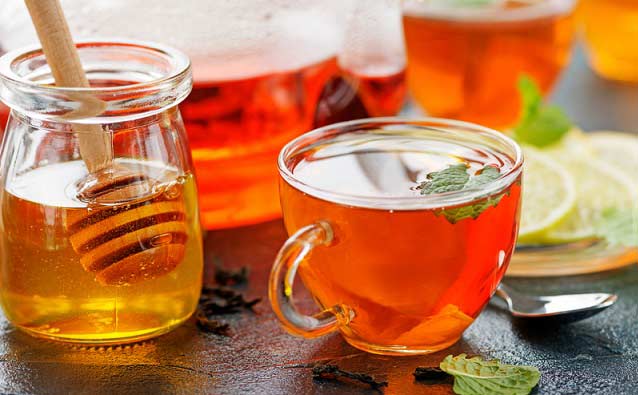Many cultures across the world are known to drink tea for hundreds of years. People even today consume a lot of tea, especially in countries such as India and China. It is believed that drinking tea with flavonoids is beneficial for the health of people.
Some studies show that drinking tea can lower the ‘bad cholesterol’ in your body, also known as LDL Cholesterol. Tea has also been known to reduce the risk of cancer, cardiac disease, diabetes, and strokes. It also improves one’s immune system and metabolism.
The innumerable health benefits linked with drinking black and green tea have pushed up its popularity.
An upsurge in world tea output
According to a report by Food and Agricultural Organizations, the UN – the worldwide production of black tea is estimated to increase at the rate of 2.2% per year only to produce 4.4 million tonnes of black tea in 2027.
The worldwide output of green tea is estimated to rise at an even faster rate of around 7.5% per year, only to produce 3.6 million tonnes of green tea in 2027. An upsurge of worldwide tea consumption backs this rise in output.
Flavonoids Benefits in Tea
People for years have been drinking tea because they have heard, “it’s good for health.” But is there any medical and scientific evidence to prove this fact? Let us find out.
According to Dr. Howard Sesso, the associate professor of medicine at the famous Harvard Medical School, said that tea is an excellent source of epicatechins and catechins, which are assumed to be the reason for tea’s health benefits. These two compounds come from a substance called flavonoids. But what are flavonoids? Flavonoids are a group of various plant chemicals or phytonutrients. According to research, flavonoid’s benefits include quelling inflammation, which might reduce plaque that builds inside arteries.
Other Benefits of Black and Green tea
Research also shows that green tea has more flavonoids than black tea. Both black and green tea also has a small amount of caffeine present in them. There are about 20-45 milligrams of caffeine present in a cup of 8 ounces. Caffeine stimulates the nervous system by blocking the inhibitory neurotransmitter adenosine.
It also enables the release of certain neurotransmitters known to enhance moods, such as serotonin and dopamine. Thus, caffeine could boost your mood, alertness, reaction time, short-term recall, and vigilance. Coffee contains double the amount of caffeine in the same sized cup.
Black and green tea also have L-theanine, which some believe stimulates the release of neurotransmitters in your brain, which is known as gamma-aminobutyric acid. It brings a relaxed yet alert state.
Various researches and studies suggest that:
- Drinking tea regularly might improve vascular reactivity. Vascular reactivity measures the response of your blood vessels to emotional or physical stress.
- Black tea and green tea also might reduce the LDL Cholesterol in your body. LDL Cholesterol is not suitable for your body.
- Drinking black or green tea regularly can also dip the blood pressure level.
The results from these studies are not 100% correct. They might be mixed.
Studies based on a large population have shown that:
- Regular black or green tea drinkers have fewer chances of suffering from strokes or heart attacks.
However, note that Dr. Howard Sesso mentioned that it is not proved that only tea is responsible for the reduction in the risk of cardiovascular diseases or are people also consuming something else. He also mentioned that some experts suggest that drinking tea might help reduce the risk of various cardiovascular diseases.
Don’t get too carried away
Do not get excited and go out to purchase green tea supplements and extracts. Dr. Howard Sesso suggests avoiding these products because they do not have sufficient evidence backing them. Therefore, do not rely on these products and compromise your health.
If you drink one or two cups of tea daily, that is fine. However, excess of anything is wrong. Excess consumption of tea may harm your kidneys. For instance, black tea has oxalates, which might cause stones in the kidney.
Dr. Sesso also suggests drinking tea to enjoy it, do not force it on yourself if you do not like it. Moreover, he also said that you could add a little amount of sugar to your tea. However, adding too much sugar will cancel out all the health benefits of tea.
You should especially avoid those pre-packaged teas which might have up to nine teaspoons of sugar. Colas and other soft drinks have almost the same amount of sugar in them. So it is better to save some of your hard-earned money and brew a cup of tea by yourself.
What is the difference between black tea, green tea, and herbal tea?
To your surprise, black and green tea come from the same plant! Yes, Camellia sinensis is an evergreen shrub grown in mountainous regions of India, China, and other countries. The main difference between black and green tea arises from what happens after the harvesting of leaves.
For making green tea, the leaves are heated or steamed quickly to stop the process of oxidation. Oxidation is a chemical process that turns the leaves brown.
For black tea, the harvested leaves are crushed, rolled, torn, or curled. They are allowed to oxidize, and then they are dried. This process degrades the flavonoids in tea leaves. This is the reason why black tea has a fewer amount of flavonoids than green tea. We have already discussed flavonoid’s health benefits earlier in this article.
To make herbal tea, a range of different spices, herbs, and other plants like cinnamon, mint, ginger, rose hips, and licorice. Herbal tea might have some additional chemicals that might benefit health. However, there are no significant researches or studies that suggest health benefits associated with herbal tea.
Both black and green tea have similar health benefits. However, no research gives a full surety of the fact yet, the chemicals found in both types of tea are suitable for your body. So if you like drinking tea, you can undoubtedly continue drinking that, don’t drink too much.
Instead of repeating the same foods daily, try to mix it up to make sure you are getting all the foods high in flavonoids, add more protein.









